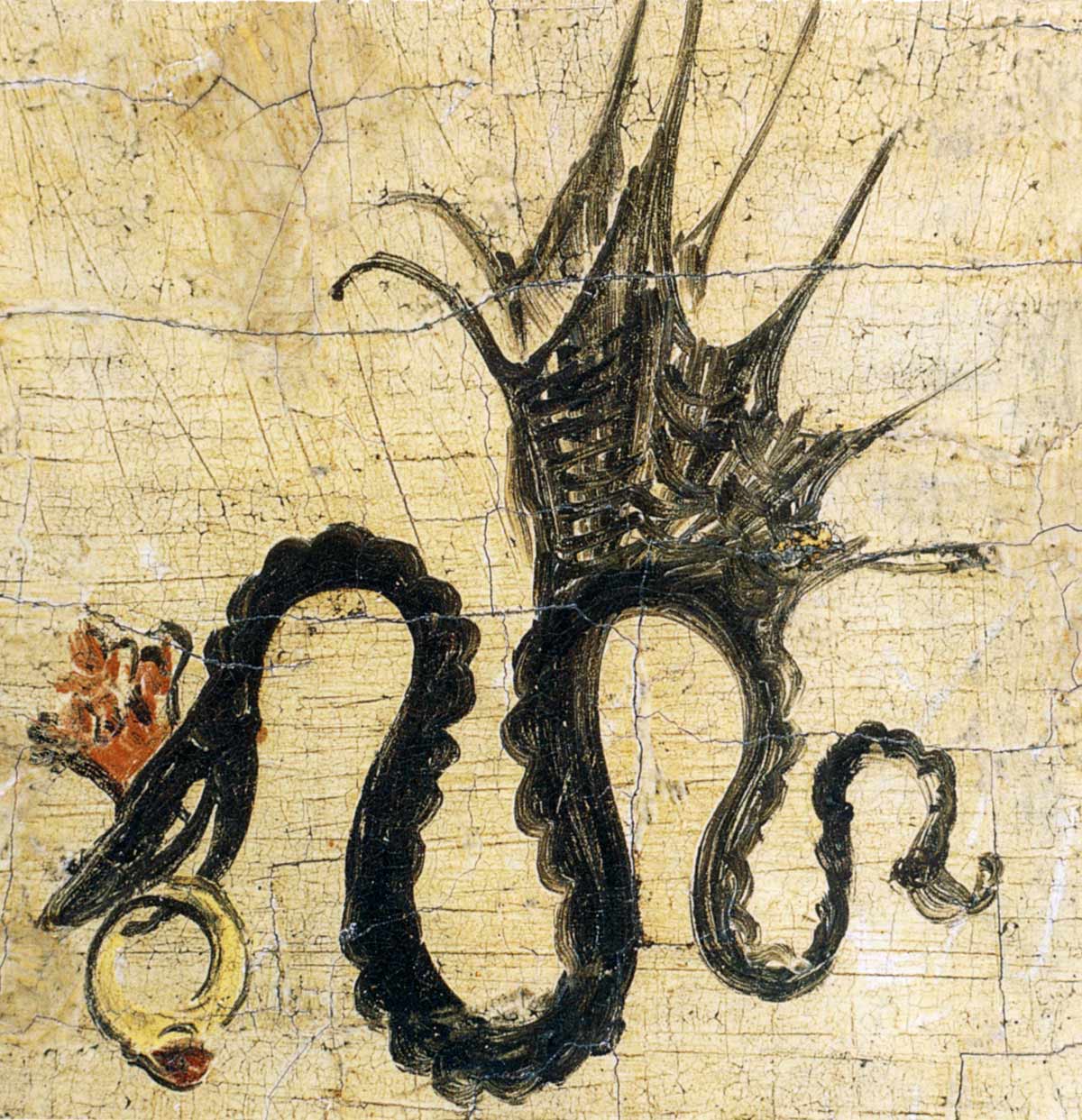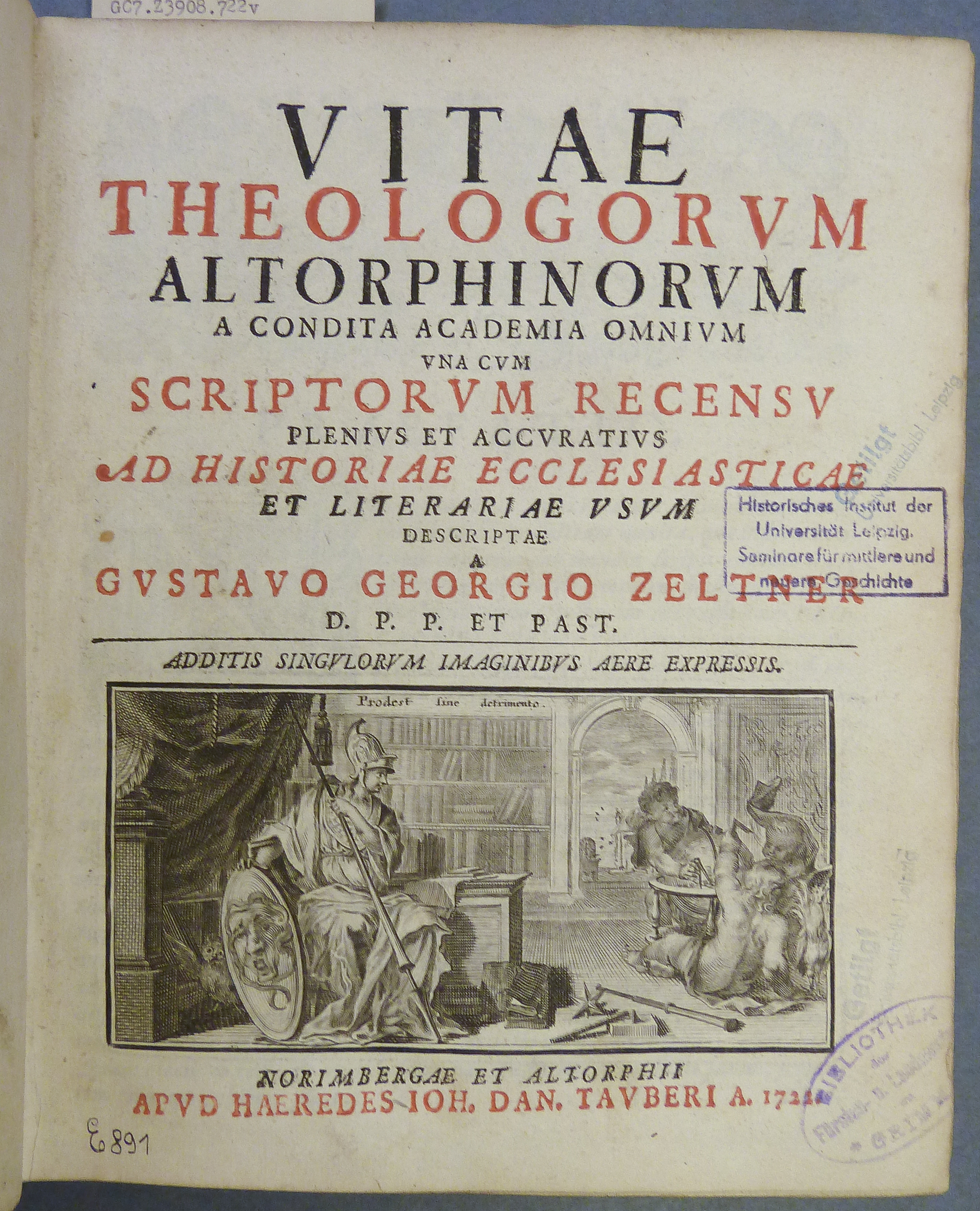|
Hans Lufft
Hans Lufft (1495–1584) was a German printer and publisher, commonly called "the Bible Printer," because in 1534 he printed at Wittenberg the first complete edition of Luther's Bible, in two Folio volumes with woodcut illustrations by Lucas Cranach. Lufft printed in the 40 years following more than 100,000 copies of the German Bible. He also printed many of Luther’s other works. References * Gustav Georg Zeltner Gustav Georg Zeltner (16 September 1672, in Hiltpoltstein – 20 July 1738, in Poppenreuth) was a Lutheran theologian. Zeltner wrote numerous theological and historical writings. Life From 1689 to 1694 he studied philosophy and theology at the ..., biography of ''Lufft'' (Altdorf, 1727) * Von Dommer, ''Die ältesten Drucke aus Marburg in Hessen, 1527-1566'' (Marburg, 1892) * 1495 births 1584 deaths German printers German publishers (people) 16th-century German people {{Germany-business-bio-stub ... [...More Info...] [...Related Items...] OR: [Wikipedia] [Google] [Baidu] |
Germans
, native_name_lang = de , region1 = , pop1 = 72,650,269 , region2 = , pop2 = 534,000 , region3 = , pop3 = 157,000 3,322,405 , region4 = , pop4 = 21,000 3,000,000 , region5 = , pop5 = 125,000 982,226 , region6 = , pop6 = 900,000 , region7 = , pop7 = 142,000 840,000 , region8 = , pop8 = 9,000 500,000 , region9 = , pop9 = 357,000 , region10 = , pop10 = 310,000 , region11 = , pop11 = 36,000 250,000 , region12 = , pop12 = 25,000 200,000 , region13 = , pop13 = 233,000 , region14 = , pop14 = 211,000 , region15 = , pop15 = 203,000 , region16 = , pop16 = 201,000 , region17 = , pop17 = 101,000 148,00 ... [...More Info...] [...Related Items...] OR: [Wikipedia] [Google] [Baidu] |
Wittenberg
Wittenberg ( , ; Low Saxon language, Low Saxon: ''Wittenbarg''; meaning ''White Mountain''; officially Lutherstadt Wittenberg (''Luther City Wittenberg'')), is the fourth largest town in Saxony-Anhalt, Germany. Wittenberg is situated on the River Elbe, north of Leipzig and south-west of Berlin, and has a population of 46,008 (2018). Wittenberg is famous for its close connection with Martin Luther and the Protestant Reformation, for which it received the honourific ''Lutherstadt''. Several of Wittenberg's buildings are associated with the events, including a preserved part of the Augustinians, Augustinian monastery in which Luther lived, first as a monk and later as owner with his wife Katharina von Bora and family, considered to be the world's premier museum dedicated to Luther. Wittenberg was also the seat of the Elector of Saxony, a dignity held by the dukes of Duchy of Saxe-Wittenberg, Saxe-Wittenberg, making it one of the most powerful cities in the Holy Roman Empire. To ... [...More Info...] [...Related Items...] OR: [Wikipedia] [Google] [Baidu] |
Martin Luther
Martin Luther (; ; 10 November 1483 – 18 February 1546) was a German priest, theologian, author, hymnwriter, and professor, and Order of Saint Augustine, Augustinian friar. He is the seminal figure of the Reformation, Protestant Reformation and the namesake of Lutheranism. Luther was ordained to the Priesthood in the Catholic Church, priesthood in 1507. He came to reject several teachings and practices of the Catholic Church, Roman Catholic Church; in particular, he disputed the view on indulgences. Luther proposed an academic discussion of the practice and efficacy of indulgences in his ''Ninety-five Theses'' of 1517. His refusal to renounce all of his writings at the demand of Pope Leo X in 1520 and the Charles V, Holy Roman Emperor, Holy Roman Emperor Charles V at the Diet of Worms in 1521 resulted in his Excommunication (Catholic Church)#History, excommunication by the pope and condemnation as an Outlaw#In other countries, outlaw by the Holy Roman Emper ... [...More Info...] [...Related Items...] OR: [Wikipedia] [Google] [Baidu] |
Book Size
The size of a book is generally measured by the height against the width of a leaf, or sometimes the height and width of its cover. A series of terms is commonly used by libraries and publishers for the general sizes of modern books, ranging from ''folio'' (the largest), to ''quarto'' (smaller) and ''octavo'' (still smaller). Historically, these terms referred to the format of the book, a technical term used by printers and bibliographers to indicate the size of a leaf in terms of the size of the original sheet. For example, a quarto (from Latin ''quartō'', ablative form of ''quartus'', fourth) historically was a book printed on sheets of paper folded in half twice, with the first fold at right angles to the second, to produce 4 leaves (or 8 pages), each leaf one fourth the size of the original sheet printed – note that a ''leaf'' refers to the single piece of paper, whereas a ''page'' is one side of a leaf. Because the actual format of many modern books cannot be determined fro ... [...More Info...] [...Related Items...] OR: [Wikipedia] [Google] [Baidu] |
Lucas Cranach The Elder
Lucas Cranach the Elder (german: Lucas Cranach der Ältere ; – 16 October 1553) was a German Renaissance painter and printmaker in woodcut and engraving. He was court painter to the Electors of Saxony for most of his career, and is known for his portraits, both of German princes and those of the leaders of the Protestant Reformation, whose cause he embraced with enthusiasm. He was a close friend of Martin Luther. Cranach also painted religious subjects, first in the Catholic tradition, and later trying to find new ways of conveying Lutheran religious concerns in art. He continued throughout his career to paint nude subjects drawn from mythology and religion. Cranach had a large workshop and many of his works exist in different versions; his son Lucas Cranach the Younger and others continued to create versions of his father's works for decades after his death. He has been considered the most successful German artist of his time. Early life He was born at Kronach in uppe ... [...More Info...] [...Related Items...] OR: [Wikipedia] [Google] [Baidu] |
Gustav Georg Zeltner
Gustav Georg Zeltner (16 September 1672, in Hiltpoltstein – 20 July 1738, in Poppenreuth) was a Lutheran theologian. Zeltner wrote numerous theological and historical writings. Life From 1689 to 1694 he studied philosophy and theology at the University of Jena. In 1695 he assumed the position of inspector of the alumni in Altdorf. In 1698 he moved to Nuremberg and worked as a vicar and as a professor of metaphysics at the Aegidianum. Two years later he was appointed deacon at St. Sebaldus Church, Nuremberg. During his time in Nuremberg, Zeltner get his doctorate in theology and returned to Altdorf in 1706 to teach theology and oriental studies at the local university. In 1730 he was accepted as an external member of the Prussian Academy of Sciences The Royal Prussian Academy of Sciences (german: Königlich-Preußische Akademie der Wissenschaften) was an academy established in Berlin, Germany on 11 July 1700, four years after the Prussian Academy of Arts, or "Arts Academy ... [...More Info...] [...Related Items...] OR: [Wikipedia] [Google] [Baidu] |
1495 Births
Year 1495 ( MCDXCV) was a common year starting on Thursday (link will display the full calendar) of the Julian calendar. Events January–December * February – King's College, Aberdeen, predecessor of the University of Aberdeen in Scotland, is founded on the petition of William Elphinstone, Bishop of Aberdeen. It is the first English-speaking university to teach medicine. * February 22 – Italian War of 1494–98: King Charles VIII of France enters Naples, to claim the city's throne. A few months later, he decides to return to France, and leaves Naples with most of his army, leaving a force under his cousin Gilbert, Count of Montpensier as viceroy. Syphilis is first definitely recorded in Europe during this invasion. (perhaps from French forces who may have contacted Croats fleeing an Ottoman army in the east). * May 26 – A Spanish army under Gonzalo Fernández de Córdoba lands in Calabria, with the purpose of ousting the French and restoring Ferdinand ... [...More Info...] [...Related Items...] OR: [Wikipedia] [Google] [Baidu] |
1584 Deaths
__NOTOC__ Events January–June * January–March – Archangelsk is founded as ''New Kholmogory'' in northern Russia, by Ivan the Terrible. * January 11 – Sir Walter Mildmay is given a royal licence to found Emmanuel College, Cambridge in England. * March 18 ( N.S. March 28) – Ivan the Terrible, ruler of Russia since 1533, dies; he is succeeded as Tsar by his son, Feodor. * May 17 – The conflict between Toyotomi Hideyoshi and Tokugawa Ieyasu culminates in the Battle of Nagakute. * June 1 – With the death of the Duc d'Anjou, the Huguenot Henry of Navarre becomes heir-presumptive to the throne of France. * June 4 – Walter Raleigh sends Philip Amadas and Arthur Barlowe to explore the Outer Banks of Virginia (now North Carolina), with a view to establishing an English colony; they locate Roanoke Island. * June 11 – Walk (modern-day Valka and Valga, towns in Latvia and Estonia respectively), receives city rights from Polish ... [...More Info...] [...Related Items...] OR: [Wikipedia] [Google] [Baidu] |
German Printers
German(s) may refer to: * Germany (of or related to) **Germania (historical use) * Germans, citizens of Germany, people of German ancestry, or native speakers of the German language ** For citizens of Germany, see also German nationality law **Germanic peoples (Roman times) * German language **any of the Germanic languages * German cuisine, traditional foods of Germany People * German (given name) * German (surname) * Germán, a Spanish name Places * German (parish), Isle of Man * German, Albania, or Gërmej * German, Bulgaria * German, Iran * German, North Macedonia * German, New York, U.S. * Agios Germanos, Greece Other uses * German (mythology), a South Slavic mythological being * Germans (band), a Canadian rock band * "German" (song), a 2019 song by No Money Enterprise * ''The German'', a 2008 short film * "The Germans", an episode of ''Fawlty Towers'' * ''The German'', a nickname for Congolese rebel André Kisase Ngandu See also * Germanic (other) * Germa ... [...More Info...] [...Related Items...] OR: [Wikipedia] [Google] [Baidu] |
German Publishers (people)
German(s) may refer to: * Germany (of or related to) **Germania (historical use) * Germans, citizens of Germany, people of German ancestry, or native speakers of the German language ** For citizens of Germany, see also German nationality law **Germanic peoples (Roman times) * German language **any of the Germanic languages * German cuisine, traditional foods of Germany People * German (given name) * German (surname) * Germán, a Spanish name Places * German (parish), Isle of Man * German, Albania, or Gërmej * German, Bulgaria * German, Iran * German, North Macedonia * German, New York, U.S. * Agios Germanos, Greece Other uses * German (mythology), a South Slavic mythological being * Germans (band), a Canadian rock band * "German" (song), a 2019 song by No Money Enterprise * ''The German'', a 2008 short film * "The Germans", an episode of ''Fawlty Towers'' * ''The German'', a nickname for Congolese rebel André Kisase Ngandu See also * Germanic (other) * Germa ... [...More Info...] [...Related Items...] OR: [Wikipedia] [Google] [Baidu] |







